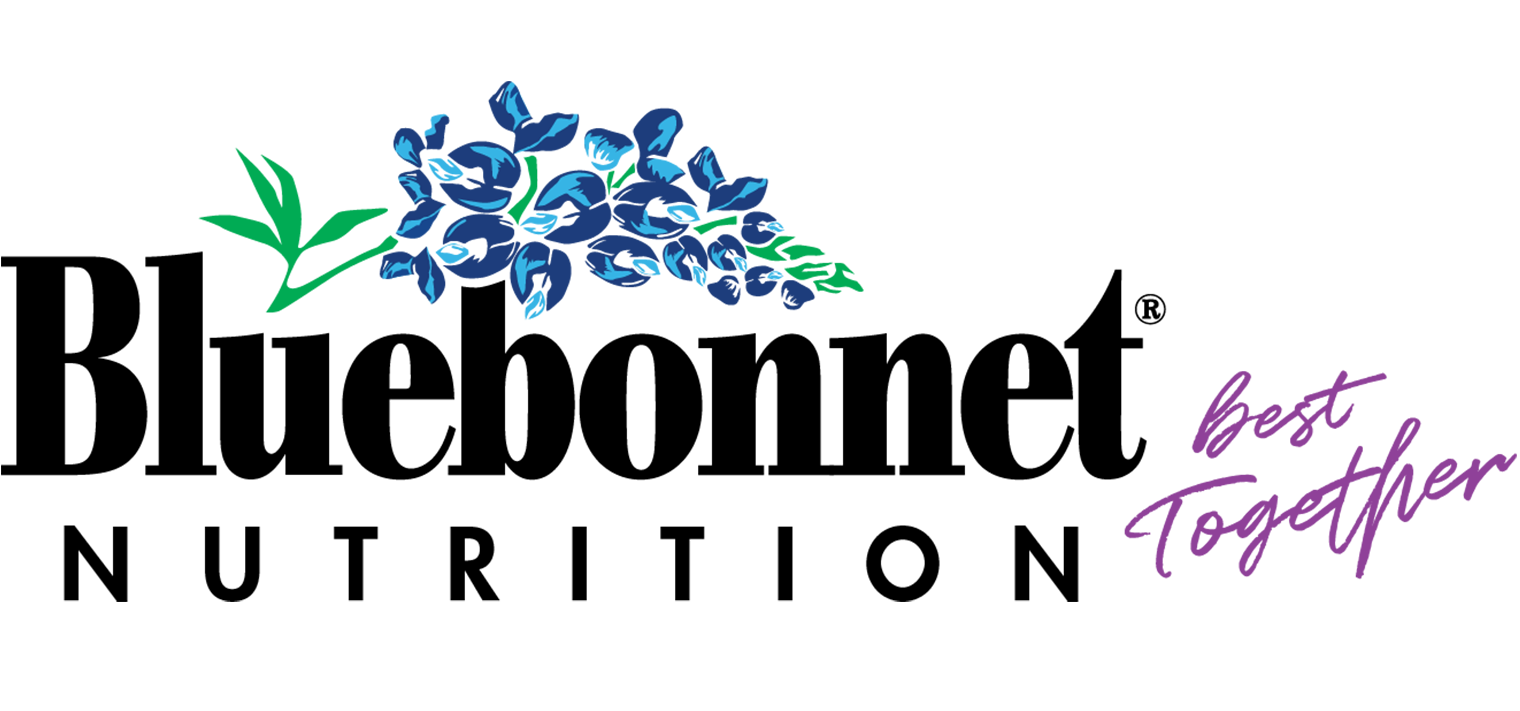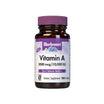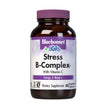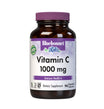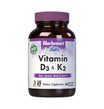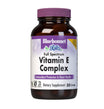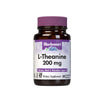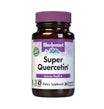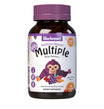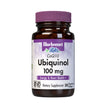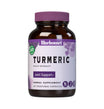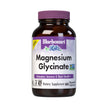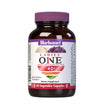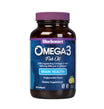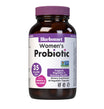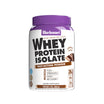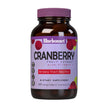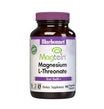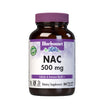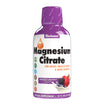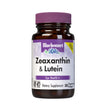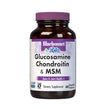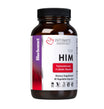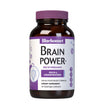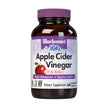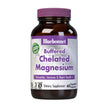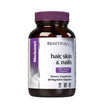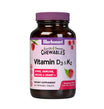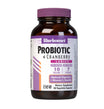FAQ
General Questions
Where can I buy Bluebonnet Nutrition products?
Currently, Bluebonnet Nutrition products are sold in our online store and in a variety of stores. To find the stores near you, visit our Store Locator page and type in your city or zip code.
Where are Bluebonnet products made?
Bluebonnet products are produced in the US and shipped around the world.
I have a product that is past its expiration date. Is it still safe to take?
For safety, we do not advise taking any product you suspect of being more than three years old or any products past the posted expiration date.
Are Bluebonnet products safe to give to animals?
We have not done the necessary testing needed to advise giving any of our products to your furry friends. Consult your vet before giving any vitamins or supplements to your animals.
I have a question regarding your margarine/butter products.
Bluebonnet Nutrition is a high-quality vitamins and supplements company, we are not affiliated with the margarine and butter company, Blue Bonnet (https://www.bluebonnet.com/)
California Prop 65
WARNING! These products contain lead or other chemicals known to the state of California to cause cancer, birth defects and other reproductive harm. A Prop 65 (formerly titled “The Safe Drinking Water and Toxic Enforcement Act”) is a California law passed by direct voter initiative in 1986 to initially protect drinking water sources from toxic substances that cause cancer and birth defects and to reduce or eliminate exposures to those elements. Over the years, this law was extended to consumer products that did not meet the lower limits established by the law like dietary supplements, requiring them to include a warning about potential exposure to a list of elements known to the State of California to cause cancer, birth defects or other reproductive harm. Proposition 65 requires lower limits on these substances than those required by the federal government in all of the other 49 states established by the United States Pharmacopeia (USP) and the Food and Agriculture Organization of the United Nations and the World Health Organization (FAO/WHO). In fact, the warning level for reproductive toxicants is 1000 times lower according to Prop 65 than the lowest level established by the federal guidelines at which animal studies reported no reproductive health effect At Bluebonnet, we have always taken the initiative when it comes to full disclosure on our labels even when labeling requirements like those in California through Prop 65 are so strict they exceed the requirements set federally in the other 49 states and are often impossible to meet when it comes to organic ingredients. Regardless, you can be rest assured that all Bluebonnet supplements meet federal safety limits on potentially toxic substances regardless of the laws set individually by each state. And in states like California, that have more stringent requirements, we will be transparent on our labels in following their specific warning guidelines; but this should not be a cause for concern over the consumer safety of any Bluebonnet product.
How do I view or change my active subscriptions?
Please follow the instructions in this link to access your subscription customer portal and make changes to your active subscriptions.
https://bluebonnetnutrition.com/pages/subscribe-save-faq
Dietary Supplements Questions
What are amino acids?
Amino acids are the building blocks of proteins, and proteins are the building blocks of life. Unlike fat and carbohydrates, the human body does not store excess amino acids for later use. Amino acids must be obtained from protein in the diet on a daily basis to meet the needs of the body. They are crucial and have wide-ranging roles, including the repair and maintenance of muscles, organs, nails, hair, skin, ligaments, connective tissues, glands, etc. Because amino acids are considered the building blocks of life, specifically protein, a deficiency in even one of them can have detrimental effects on one’s health and well-being.
What is the difference between essential and non-essential amino acids?
There are twenty “standard” amino acids used by cells in protein biosynthesis. Of the 20+ amino acids, 9 are “essential” and are required in the diet, since the body cannot produce them. “Nonessential” amino acids, on the other hand, are produced in the body from other amino acids when given an adequate supply of nitrogen, carbon, hydrogen and oxygen.
What are vitamins?
Vitamins are essential organic (carbon-containing) nutrients that are found in food, and they contribute to good health by regulating metabolism and assisting in the biochemical processes that release energy from digested food. They are classified as either fat- or water-soluble. The fat-soluble vitamins include A, D, E and K. The water-soluble vitamins include thiamin (B1), riboflavin (B2), niacin (B3), B6, folate, B12, biotin, pantothenic acid (B5), and vitamin C (ascorbic acid). With the exception of B12, water-soluble vitamins are stored in the body in limited amounts and are excreted within one to four days; therefore, they must be replenished on a daily basis. Fat-soluble vitamins, however, are stored in the body’s adipose tissues and liver. These storage sites for fat-soluble vitamins may reduce the chance for a deficiency, but they still must be consumed on a daily basis for good health.
What are minerals?
Minerals make up 60-80% of all the inorganic (noncarbon-containing) material in the body and fall into two categories: macrominerals and microminerals. There are seven macrominerals – also known as major or bulk minerals: calcium, chloride, magnesium, phosphorus, potassium, sodium and sulfur. They are present in virtually every cell in the body. In fact, the human body needs at least 100 milligrams (mg) of each every day – just for normal functioning and well-being. Microminerals, commonly called trace minerals, are required in smaller quantities – typically less than 100 mg per day. Still, some are considered “essential” for good nutrition. Essential microminerals include chromium, copper, fluoride, iodine, iron, manganese, molybdenum, selenium and zinc. Dietary minerals serve a life-sustaining function by helping the body operate properly and remain strong. Minerals not only build skeletal and soft tissues, they also regulate processes – such as heartbeat, normal blood clotting, internal fluid pressure, nerve reactions, impulse transmissions, muscle contractions, oxygen transport, acid-base balance to keep the body pH neutral, and enzyme and hormone systems.
Who needs to supplement with a multivitamin or mineral formula and why?
In today’s fast-paced world, many individuals rely on fast food and a not-so-well-balanced diet. Therefore, most people do not get the daily recommended allowance of vitamins, minerals and other nutrients that are required for optimal health and wellness. Both vitamins and minerals are fundamental in the growth, development, metabolism, maintenance and repair of tissues, coenzyme systems and general ongoing health. Multivitamin and mineral formulas help to bridge the nutrient gap in daily diets. So, no matter one’s activity level, dietary habits, age, gender or health status, supplementing the diet with a multivitamin and mineral formula can provide benefits that the whole body can utilize. In fact, the human body requires a broad range of essential and nonessential nutrients for general health and well-being, each of which has a specific function. Essential nutrients are ones that the body cannot manufacture and/or are produced in limited amounts; therefore, they must be obtained from the diet. These include carbohydrates, essential amino acids, essential fatty acids, vitamins, minerals and water.
What are free radicals and antioxidants?
Free radicals are generated by exposure to harmful environmental factors, such as: smog, ozone, chemicals, drugs, smoking and radiation, as well as during normal physiological processes, especially in defense against microbes and other foreign substances. Free radicals can damage DNA, proteins and lipids within cells, altering or inhibiting cellular function. Dietary antioxidants, such as vitamins E and C, carotenoids and others, function to help control or eliminate free radicals by donating electrons, thus, maintaining cellular health by offsetting the damage they can potentially cause. Antioxidants that are available through the diet are considered exogenous antioxidants and include: amino acids [N-acetyl-L-cysteine (NAC), taurine and L-glutathione (tripeptide)], vitamins C and E, carotenoids (beta-carotene, lycopene, lutein and zeaxanthin), and minerals (selenium and zinc). Antioxidants produced in the body are considered endogenous antioxidants and include: ubiquinone/ubiquinol (CoQ10), alpha lipoic acid and the master cellular defense enzyme, superoxide dismutase (SOD) and many more. However, many factors have been found to compromise the levels of endogenous antioxidants in the body making supplementation essential, such as the normal aging process, certain medications and oxidative stress.
Is carrageenan safe to consume in dietary supplements?
The carrageenan used in some of our dietary supplements is a food-grade, naturally occurring polysaccharide found in seaweed. This material is used in some of our products for its gel-forming, stabilizing, and emulsifying properties. Additionally, our food-grade carrageenan is Non-GMO Project Verified and approved by the FDA as a food additive. Moreover, it should not be confused with degraded carrageenan, which is a known carcinogen.
In case you don't see the answer to your question please feel free to send us a message in our contact form, we will get back to you as soon as we can.
